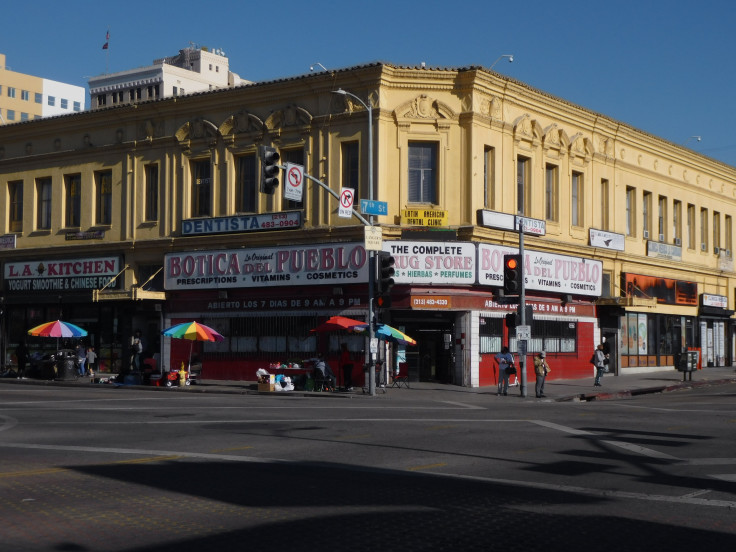
This week, The Latin Times had an exclusive interview with Maria Casado, the Hispanic Media Director for President Joe Biden's re-election campaign. We also reported on how Latinos opened 25% of new businesses in the U.S. and listened to the lyrics of Bad Bunny's new EP.
As the 2024 presidential elections approach, Spokesperson and Hispanic Media Director for the Biden-Harris campaign Maria Carolina Casado spoke with The Latin Times about Hispanic outreach, why Latinos have leaned towards the Democratic Party, the Dreamers Act, immigration reform and how she believes Republicans make it difficult to implement immigration reform.
The entrepreneurial drive of the Latino community grew after the pandemic to such an extent that they are behind one-quarter of the businesses started in 2021, said the U.S. Department of the Treasury.
In a report card to celebrate Hispanic Heritage Month, the Treasury said "There has been a lasting surge in business applications and startups" in the U.S. and nearly 25% of all new entrepreneurs in 2021 were Latino.
The report states that Americans, including Latino entrepreneurs, filed nearly 10.5 million applications to start new businesses in 2021 and 2022.
Bad Bunny's new album has officially arrived and its awash with references to global icons, as well as artists featured in the 22-tracked "Nadie Sabe Lo Que Va A Pasar Mañana" (Nobody knows what will happen tomorrow).
Formula 1 drivers Sergio "Checo" Pérez and Max Verstappen, as well as soccer superstar Lionel Messi are among the personalities mentioned in the lyrics of "Monaco," one of the songs. LeBron James, Leonardo Di Caprio and Sofia Vergara are part of it as well.
"Mexican citizens can now enter the United States without a visa". This announcement, which appeared in social media such as TikTok and YouTube, is an illustrating example of the fact that misinformation has become widespread in these means of communication.
Other examples that circulated widely claimed that Biden had announced that Ecuadorian citizens could enter the United States legally through a new refugee program, and that people arriving at the U.S. border under Title 42 could not be deported. This video had over 17 million views on TikTok.
A new trade organization called the National Hispanic Construction Alliance was formed with the goal of addressing representation and career advancement for Latinos in the construction sector. Hispanic workers accounted for 30 percent of the construction industry but remained underrepresented in managerial roles at only 14.3 percent, according to the latest data available from the Bureau of Labor Statistics.
The NHCA is led by CEO George Carrillo, a former executive director of LatinoBuilt, an Oregon-based construction trade association, and senior executive in government and human services. Along with the National Association of Hispanic Real Estate Professionals (NAHREP), an organization focused on advancing sustainable Hispanic homeownership with over 50,000 members and 100 chapters across the U.S., they are working to recruit an advisory board that can provide insight and accessibility to resources in crafting a new program for the association.
Latinos care about climate change and see electric vehicles as a way to reduce their carbon footprint. However, EV adoption remains low among the Hispanic population. The reasons are not exclusively economic: educational and systemic barriers come into play too.
This comes as EV ownership in the U.S. slowly rises. According to a Pew survey, 9 percent of all U.S. adults currently own an electric vehicle, which is up two percentage points since 2020. The survey also noted that 38 percent of U.S. adults would consider an EV as their next vehicle.
As Hispanic Heritage month continues, different cities in the U.S. are reviewing the increase in their Hispanic population in recent years, recognizing with concrete data how they have demographically, culturally and economically enriched them. The latest one to do so is Atlanta.
On Wednesday, website 33°N – which shares research on the Atlanta metropolitan region – published a study examining how the Hispanic population of the 11-county ARC region has grown and evolved over the past 30 years.
The report, managed by the Research and Analysis Division of the Atlanta Regional Commission, mentions that, in 1990, the Latino population in the 11-county region was only 55,105. By 2020, the figure had risen to 652,848.
© 2025 Latin Times. All rights reserved. Do not reproduce without permission.






